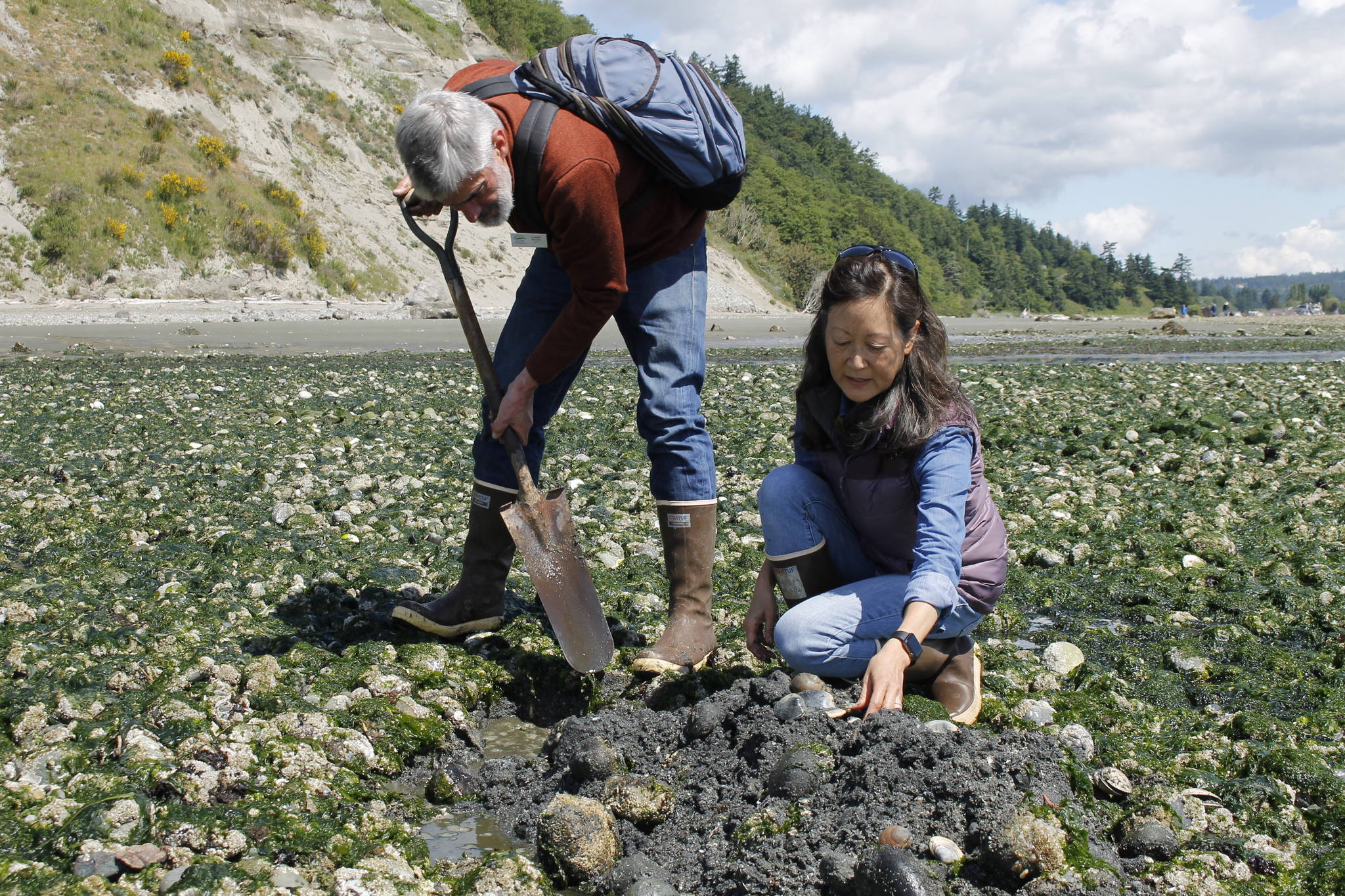Useless Bay may be shallow, but that doesn’t make it useless for finding a plethora of clams at low tide.
After a year off because of the pandemic, the Sound Water Stewards will be teaching a series of classes this summer for amateur clammers at Double Bluff Beach.
Dubbed “Digging 4 Dinner,” the sessions allow participants to literally dig for their next meal — as long as they don’t exceed the daily limit of 40 clams per person.
A shovel, bucket, sensible beach shoes, water bottle and sunscreen are all recommended for the excursion. The digging occurs in a rocky area of the beach, at the foot of a bluff. Classes last for a few hours, and temperatures in the summer can get hot.
Instructors also recommend bringing a net to separate clams if more than one person is using a bucket. That way, each person’s haul can be easily identified in the event that licenses are being checked.
For the duration of class, a shellfish license is provided free of charge to the participants. A $10 donation per person to the Sound Water Stewards is suggested to cover the cost of the all-ages class.
Leigh Bloom, a Sound Water steward, and Michele Sakaguchi, an outdoor educator, have been teaching Digging 4 Dinner classes together for about two years.
“It’s just fun to have an activity, come out, get people together and enjoy this place and learn something in the process,” Bloom said.
“It’s always fun for me as a teacher to see young people and older people get excited and engaged in these beautiful places we live,” Sakaguchi said.
She added that she enjoys seeing the “primal, hunter-gatherer” mood of people as they search for clams because it’s infectious and fun.
Both instructors recommend that people only take what they can use. It’s about a 10-minute walk out to the bluff, and clams must be mature and a certain size in order to be harvested. Combined with water in a bucket, that load can get heavy fast.
“The truth is that most people really aren’t just going to sit down and eat 40 of those clams,” Bloom said. “So to protect the resource, we encourage people to think about how many they really want, and of course they can come back.”
Sakaguchi and Bloom both recommended filling in the holes after digging for clams.
Some clams can be as deep as a foot and a half below the shore, and besides being a safety hazard, unfilled holes also disrupt the ecosystem of the clams.
“When you’re harvesting the clams, you’re really totally changing that little environment that’s in place there,” Bloom said. “And the quickest way that it can get back to the way it was is if you fill that back in.”
If people return to clam again by themselves, they will need to obtain a shellfish license, which can be obtained by visiting wdfw.wa.gov/licenses/fishing.
Digging 4 Dinner classes are limited to 50 participants each. Masks and physical distancing are not required for those who have been vaccinated against COVID-19; otherwise, people should social distance and mask up. The beach has plenty of space for distancing, and masks and hand sanitizer will be available.
During the sessions, instructors will discuss identifying clams, safety tips and recipe ideas. When clamming, people should check online at doh.wa.gov/shellfishsafety to make sure beaches aren’t closed because of biotoxins.
Classes are June 25 at 11 a.m., June 27 at 12:30 p.m., July 10 at 11 a.m., July 23 at 10 a.m. and July 25 at 11:30 a.m. To reserve a spot in one of the classes, visit soundwaterstewards .org/d4d.



